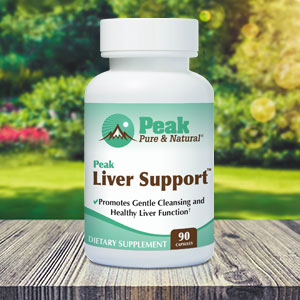Get Easy Health Digest™ in your inbox and don’t miss a thing when you subscribe today. Plus, get the free bonus report, Mother Nature’s Tips, Tricks and Remedies for Cholesterol, Blood Pressure & Blood Sugar as my way of saying welcome to the community!
Are ultra-processed foods the new smoking?

The term “ultra-processed foods” (UPFs) has been around since the 1980s, when a few experts first began expressing concern about these highly manufactured products, filled with additives and lacking essential nutrients.
Back then, experts speaking out against UPFs were often written off as crackpot extremists or even accused of being pseudoscientists.
How times have changed. Now that UPFs make up nearly 60 percent of the typical U.S. adult diet and close to 70 percent of what American children eat, a lot more experts are sounding the alarm.
UPFs are designed to last longer, taste good and encourage overeating while providing little nutritional value. Worse, a growing body of research has linked UPFs to increased risk of obesity, cancer, heart and metabolic diseases, dementia, mental health disorders and even premature death.
In fact, one team of researchers found consumption of UPFs could be on a par with smoking as far as impact on our health is concerned…
UPFs and inflammation
Researchers led by Florida Atlantic University (FAU) analyzed health data from 9,254 U.S. adults in the National Health and Nutrition Examination Survey, including diet and levels of the inflammatory marker high-sensitivity C-reactive protein (hs-CRP) — a strong predictor of cardiovascular disease.
UPF intake was measured as a percentage of total calories and grouped into four levels. The researchers then used statistical methods to probe the link between UPF consumption and inflammation.
According to the findings, participants received a median of 35% of their daily calories from UPFs. Consumption ranged from 0 to 19% of daily calories in the lowest group to 60-79% in the highest.
After adjusting for age, gender, smoking, physical activity and other health factors, those in the highest UPF group were 11% more likely to have elevated hs-CRP levels than those in the lowest group. Surprisingly, those who consumed moderate levels of UPFs (40 to 59 percent) showed an even higher likelihood — 14% — of elevated hs-CRP.
Certain groups were especially susceptible…
- Adults aged 50 to 59 had a 26% higher risk of elevated hs-CRP than those aged 18 to 29.
- Obesity contributed to a whopping 80% higher risk compared to people at a healthy weight.
- Current smokers had a 17% higher risk than people who never smoked.
- Interestingly, there was no significant difference between those who reported no physical activity and those who met activity guidelines.
“C-reactive protein is produced by the liver, and the hs-CRP protein test is a simple, affordable and highly sensitive measure of inflammation as well as a reliable predictor of future cardiovascular disease,” says co-author Dr. Charles Hennekens of Schmidt College of Medicine. “We believe that healthcare professionals may wish to consider actively engaging with their patients about the risks of UPFs and benefits of increasing whole food consumption.”
The study authors also make note of the significant rise in colorectal cancer rates in the U.S., particularly among younger adults. They suggest increased UPF consumption may be a contributing factor, along with its potential role in several other gastrointestinal diseases.
UPFs may go the way of cigarettes
In addition, the authors draw a parallel to the history of tobacco, noting it took decades for growing evidence and the efforts of progressive health officials to lead to policies discouraging smoking. They say they believe a similar path is likely for UPFs, with heightened awareness eventually leading to meaningful public health action.
“The multinational companies that produce ultra-processed foods are very influential, much like tobacco companies were in the past, so policy changes to promote whole foods and reduce UPF consumption may take time,” Hennekens says. “However, government efforts to reduce harmful additives, improve food labeling and promote healthier options in programs and schools are important steps in the right direction.”
Hennekens adds that healthcare providers need to be aware that many people face challenges in accessing affordable, healthier food choices, a situation that calls for a broader, coordinated public health response.
It may not be easy to give up UPFs completely. But we should try to swap them out for whole, minimally processed foods wherever possible. For instance, instead of snacking on chips and soda, try having a handful of plain, unsalted nuts and seltzer water flavored with lemon or lime. Even a small change like this can lead to significant improvements in your health.
Editor’s note: Did you know that when you take your body from acid to alkaline you can boost your energy, lose weight, soothe digestion, avoid illness and achieve wellness? Click here to discover The Alkaline Secret to Ultimate Vitality and revive your life today!
Sources:
Eating Ultra-Processed Foods Could Be As Harmful as Smoking — SciTechDaily
Ultra-processed foods and increased high-sensitivity C-reactive protein — The American Journal of Medicine















